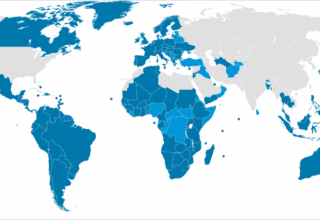
On 31 January 2020, the United Kingdom formally left the European Union. Advocates of Brexit championed the promise of sovereignty, economic opportunity, and border control; nonetheless, two-thirds of the British public seem reluctant and, after five years, agree that Brexit has damaged the economy.
One of the most immediate and visible consequences of Brexit has been its impact on trade and the economy. Although the UK negotiated a free trade deal with the EU and tried to avoid tax burdens on imports and exports, introducing new customs checks, regulatory barriers, and logistical challenges has led to increased costs for businesses, particularly those reliant on EU supply chains. The UK’s departure from the single market has indeed decline in exports, while new trade deals with non-EU nations have tried to compensate for these losses: however, some recent studies suggested that, despite the efforts, UK good exports have lowered to 30%, some suggested only 6% reduction (Chu, Kovacevic, 2025). Although the difference in quite striking, it is nonetheless evident that the UK trade has had a negative impact from leaving the EU.
In addition, the UK economy has faced labor shortages in key sectors such as agriculture, hospitality, and healthcare. Immigration, which was a key theme in the 2016 referendum campaign, saw a major fall in EU immigrants, which peaked at over 200,000 a year at the time of the referendum, yet saw a large increase in net migration from the rest of the world since 2020. However, the arrival of non-EU citizens within the British borders has not managed to make up for the necessity of labour supply: the end of free movement has led to workforce gaps, increased wage pressures, and higher living costs. Combined with inflation and the broader economic impact of the COVID-19 pandemic, British economic ramifications remain a significant concern in the aftermath of Brexit.
On the other side, one of the major victories for Brexit supporters was the restoration of political sovereignty. The UK is no longer bound by EU regulations, allowing it to craft its own policies: this newfound autonomy was evident in the UK’s independent approach to COVID-19 vaccine procurement, which many argue was more efficient than the EU’s strategy. However, the question remains whether sovereignty has translated into tangible benefits. The Northern Ireland Protocol has created ongoing political tension, with disputes over trade arrangements between Northern Ireland and the rest of the UK. Additionally, Scotland’s pro-EU stance has reinforced calls for independence, adding further complexity to the UK’s political landscape.
Brexit has also reshaped the UK’s role on the global stage. The Global Britain strategy aims to establish the UK as an independent leader in trade and diplomacy. While the UK has forged new trade agreements, including with Australia, the US, India, and Japan, these deals are often seen as less beneficial compared to the one previously enjoyed within the EU. Furthermore, Brexit has strained relations with European allies. Although diplomatic ties remain intact, the UK’s absence from EU decision-making has diminished its influence in regional affairs.
In conclusion, Brexit has undoubtedly reshaped the UK, which has turned a negative perspective. Economically, the country has faced trade disruption and labour shortages, while politically, it has reclaimed sovereignty at the cost of increased domestic turmoil and international complex diplomatic relations. The long-term success of Brexit will depend on how effectively the UK manages to shift its global position and affirm its independence, negotiating new partnerships, and strengthening new ties.
Resources
Chu B., Kovacevic T. (2025) Five key impacts of Brexit five years on, published by BBC, available at: Five key impacts of Brexit five years on
By The European Institute for International Relations















